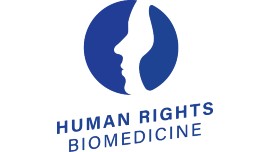Seminar on Early intervention on intersex children
Promoting the Rights of the Child
 31 May 2022, 9:30 - 17:00 CET
31 May 2022, 9:30 - 17:00 CET
Organising a seminar on relevant legislation and examples with regard to early intervention on intersex children (hereinafter - Seminar) is an action foreseen by the Strategic Action Plan on Human Rights and Technologies in Biomedicine (2020-2025), adopted by the Committee on Bioethics (DH-BIO) in 2019. The objective of this action is safeguarding children’s rights in relation to medical practices which have future or long-term implications for them.
Every child is a rights holder in his or her own capacity as recognised in Article 14 of the UN Convention on the Rights of the Child. The child’s autonomy can be conceptualised as “the child’s right to an open future”, meaning a right to have one’s future options kept open until one can make one’s own decisions. The content of the right to an open future therefore includes restrictions on what parents (and others) can do for children, and, on some interpretations, indicates what parents (and others) ought to provide children with. There are challenges regarding the most appropriate interventions which parents and others should be allowed to authorise in order to safeguard the health of the child.
Resolution 2191(2017) of the Parliamentary Assembly of the Council of Europe on promoting the human rights of, and eliminating discrimination against, intersex people, calls for “medically unnecessary, sex-“normalising” surgery” on intersex babies to be prohibited, along with other treatments practiced on intersex children and young people without their informed consent. It recommended to carry out further research into the long-term impact of these treatments and to ensure that, unless there is an immediate risk to the life of a child, altering the sex characteristics of children is postponed until the child can participate in the decision.
Objectives of the Seminar
- Raising awareness on ethical and human rights/children rights issues raised by early intervention on intersex children
- Identifying legislation and sharing practices promoting children rights:
Examples of areas concerned- Training
- Decision making process regarding early intervention
- Accompanying/supporting measures










